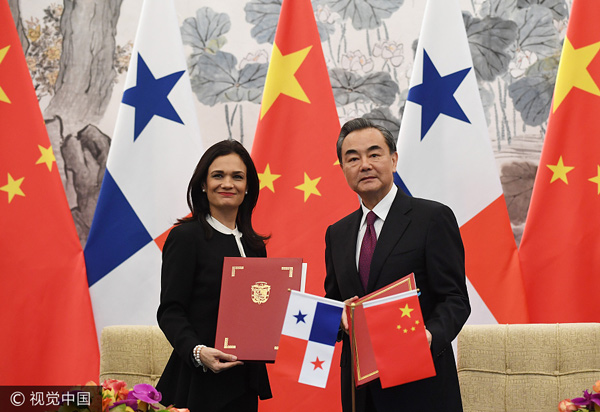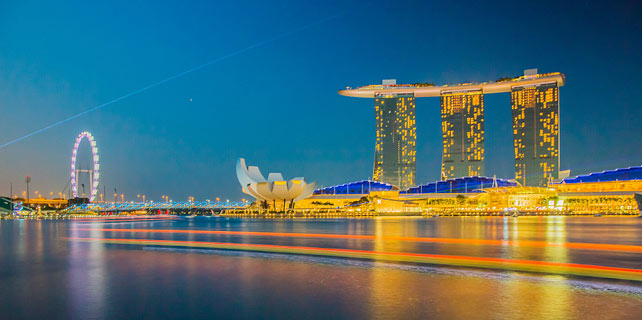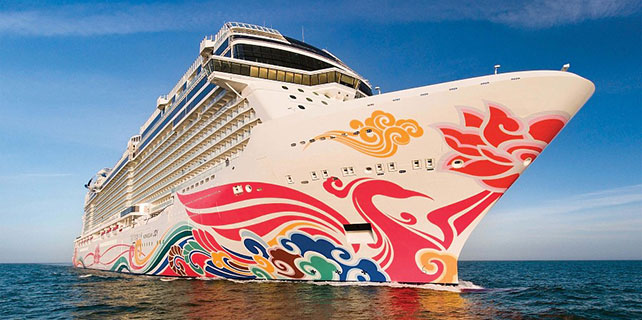Shrinking space for Tsai to flaunt independence
 |
|
Panama's Vice-President and Foreign Minister Isabel de Saint Malo, left, and Chinese Foreign Minister Wang Yi pose with their documents after signing a joint communique on establishing diplomatic relations during a press briefing in Beijing, June 13, 2017. [Photo/VCG] |
Panama is the second country to switch its recognition to Beijing since pro-independence Democratic Progressive Party chief Tsai Ing-wen became Taiwan leader last year, following a similar move by Sao Tome and Principe in December.
This, in addition to the World Health Organization's rejection of Taiwan representatives attending its annual conference in May, suggests that the principle of one China is now widely accepted by the international community and the space for Taiwan to continue to flaunt its banner of independence is rapidly shrinking.
Taipei has been pointing an accusing finger at Beijing for persuading Panama, a country with a strategic location that connects the Atlantic and Pacific oceans, to break its ties with the island.
A sovereign nation with a quarter of its population living in poverty, Panama has the right to choose its own path of development.
Chinese ships are now the second most frequent users of the Panama Canal, the main source of revenue for Panama, and as China has already been the leading provider of merchandise to a free trade zone in the Panamanian city of Colon, it is natural for the two sides to step up efforts to tap their cooperation potential by establishing formal ties.
That a COSCO freighter from the Chinese mainland was the first vessel to pass through the newly expanded canal in June last year was an indication of their strengthening relationship of mutual benefits, which is bound to prosper further now that Panama is welcome to participate in the Belt and Road Initiative.
Taipei has only itself to blame for what it sees as "suppression" of its international space.
Tsai, who likes to call herself "president of Taiwan", has so far rejected the 1992 Consensus that maintains both the Chinese mainland and Taiwan are part of one China, thus undermining the cornerstone for the peaceful development of cross-Straits relations.
In response, Beijing is obliged to take moves to counter separatist forces on the island. National reunification is China's core interest that tolerates no challenge.
So long as Tsai continues to drag her feet on accepting the 1992 Consensus, the prospects for peace and stability across the Taiwan Straits will remain dim.






















